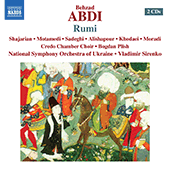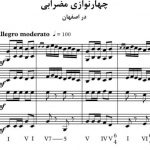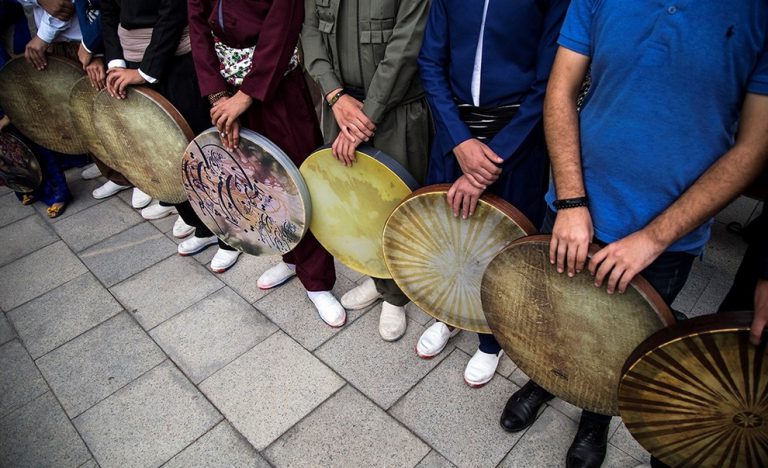
Behzad Abdi’s opera Rumi was physically released by Naxos, “the world’s leading classical label,” on 8/10/2018.
The composer’s note on the piece reads:
Composing a traditional Iranian opera using the Iranian modal system, dastgāh, has always been my dream. I first approached this by composing an opera called Ashura followed by the operas Rumi (Molawi) and Hafez. I believe that in order to attract an international audience for Iranian opera, it is essential to fuse dastgāh with Western classical forms.
Rumi, which can be considered as the first national opera of Iran, is based on the life of the Sufi mystic and poet, Rumi, and the circumstances of his time, from when the Mongols invaded Persia, killing the Iranian poet Sheikh Attar, to his time in Konya and his life-changing meeting with Shams. However, the librettist and director, Behrouz Gharibpour, chose not to reflect the events directly, instead creating a symbolic libretto based on Rumi’s thoughts and words.
This redefinition and distancing from the historical narrative is considered to be the most significant point of the text in this opera, and was in fact the only way to grasp the latent meanings of Rumi’s words. The unifying message of the work—the promise of the ‘immortality of truth’—is repeated throughout the narrative. The audience is also exposed to various other stories along the way.
Those familiar with 13th-century Iranian literary texts know that due to the successive attacks of the Mongols and the reports of massacres, the Iranian people had turned to Sufism and nihilism. This is why there are sometimes contradictions in the realm of ideas from that era, which complicates understanding, for our generation, of the secrets that lie within the literature of that time.
The key to understanding Rumi’s poetry is its far-reaching look at human aspirations; the power that we call love and the temptations that take us away from false mundane charms and attractions (which Iranian mystics in many poems refer to as wisdom or common sense).
Rumi is based on Iranian dastgāh and is the first opera to use this traditional form. The work fuses Persian and Western classical music, which creates a unique timbre and harmonic colour. Iranian music may form the base of this work, but I was not unaware of modern Western music techniques, and unlike most Iranian symphonic music, it is not based on any specific ‘ism’ or school of thought, and in all parts of the opera, Western composition techniques are employed.
In Rumi, the use of the polytonal technique is not limited to the classical elements, and it is often heard in various dastgāh simultaneously—a technique that helps to reflect the unique concepts of the poetry, and one that was also used in the opera Ashura.
The text of this opera, which is set in 15 acts, is mainly based on Rumi’s writings with several parts taken from other poets. Rumi’s poetry is not distorted and the poems are read in their original form.
For the listener, especially those familiar with Rumi’s writing, what Gharibpour has done is astonishing and admirable. Due to his long-time involvement with these concepts and careful selection of Rumi’s texts, he has created one of the best and most important libretti among Iranian operas. Gharibpour not only considered Rumi’s literary and conceptual techniques but created an artistic mix of drama, history and literature. He was able to look at Rumi’s life and his eternal teachings from several aspects.








